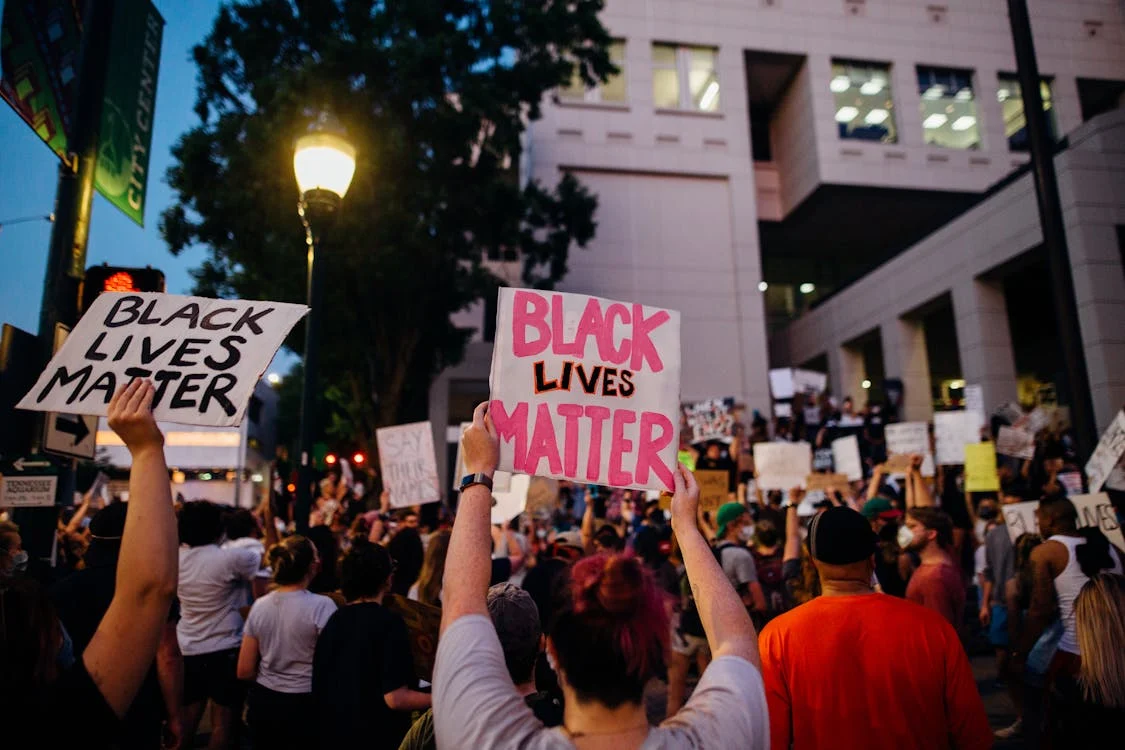TL;DR:
- “Woke” originated in African American Vernacular English, denoting awareness of social injustices.
- It now embodies progressive ideas on social justice, equality, and inclusivity.
- Key themes include identity politics, systemic inequalities, environmental justice, and diversity.
- Critics argue wokeness undermines free speech and traditional values, often stifling dissent.
- Social justice movements (Black Lives Matter, Me Too, LGBTQ+ Rights) influence legislative changes but increase polarization.
- Progressives push for inclusivity and diversity through affirmative action, gender parity, and anti-discrimination laws.
- Up to 60 million Americans are choosing not to have children, shifting political focus toward sustainability and social justice.
Is being “woke” driving society forward or pulling it apart? The term has sparked fiery debates across political lines, symbolizing a shift in modern ideologies. It all began in African American Vernacular English, signaling heightened awareness of racial injustice. Today, “woke” often aligns with movements for social justice, equality, and inclusivity. While advocates see it as essential progress, critics argue it pushes political correctness too far, stifling open dialogue. This article dives into the “woke political spectrum,” exploring its roots and its polarizing influence on current political landscapes.
Understanding the Woke Political Spectrum
The term “woke” started in African American Vernacular English. It initially meant being aware of social injustices, particularly racial discrimination. Over time, its meaning has grown, becoming central to political dialogue.
In current politics, “woke” is linked to progressive ideas emphasizing social justice, equality, and inclusivity. Supporters believe being woke involves fighting systemic injustices and ensuring fair treatment for everyone. This perspective reshapes political discourse, highlighting issues like gender equality and LGBTQ+ rights. However, some suggest that prioritizing political correctness can stifle open discussion.
- Focus on identity politics
- Emphasis on diversity and inclusion
- Challenges to traditional power structures
- Greater awareness of systemic inequalities
- Push for environmental justice
Conservative critics view wokeness as a threat to free speech and traditional values. They claim it creates environments suppressing dissenting voices, especially in educational settings. Thus, while its intentions may be noble, it often leads to divisiveness. This tension between progressives and conservatives reflects the challenges inherent in understanding the woke political spectrum.
The Influence of Social Justice on the Political Landscape

Social justice movements, like Black Lives Matter, significantly impact politics. They spotlight issues like racial inequality and police brutality, bringing them to public attention. Through protests and advocacy, they’ve influenced legislative change and law enforcement accountability. This has broadened discussions on systemic racism, leading to policy reforms.
However, these movements also increase polarization. Debates over race, gender, and equality intensify public opinion. Some view them as essential progress; others see a trend towards excessive political correctness. This dynamic affects policy crafting, as parties balance progressive demands with conservative concerns.
| Movement | Impact |
|---|---|
| Black Lives Matter | Raised awareness on racial inequality; influenced police reform efforts |
| Me Too | Highlighted sexual harassment; changed workplace policies |
| LGBTQ+ Rights Movement | Advanced marriage equality; promoted anti-discrimination legislation |
The Conservative Backlash Against Wokeness
Conservatives see woke ideology challenging traditional values. The term “woke” is often viewed pejoratively, replacing established norms with new, politically correct practices. This is perceived as undermining the social fabric valued by conservatives.
Critics argue woke culture suppresses dialogue, silencing dissenting views, especially in academic environments. Political correctness can lead to self-censorship, as individuals fear backlash for differing opinions. This climate, they say, hampers intellectual diversity and free speech, both essential for healthy political discourse.
The cultural impact of wokeness is significant. Education curricula may shift toward identity politics and diversity, sometimes sacrificing traditional subjects. Critics believe this affects educational standards, fostering a divisive atmosphere. Students might view issues through a narrow ideological lens, harming broader societal cohesion.
The Role of Inclusivity and Diversity in Modern Politics
Progressive groups prioritize inclusivity and diversity. They advocate for systemic racism recognition, gender equality, and LGBTQ+ rights, arguing it leads to equitable policies. Their efforts focus on legal frameworks protecting marginalized communities, reshaping political discourse.
- Affirmative action programs
- Gender parity in political representation
- LGBTQ+ anti-discrimination laws
- Ethnic diversity in government appointments
- Cultural sensitivity training in public institutions
Inclusivity and diversity foster a sense of belonging among underrepresented groups, increasing civic engagement. Diverse political representation ensures policies reflect the diverse needs of the population. This approach enhances the political landscape and reinforces societal cohesion by promoting understanding across cultural lines.
The Impact of Woke Culture on Generational Politics

A demographic shift shows up to 60 million Americans choosing not to have children. How does this affect politics? It amplifies child-free voices in political arenas, aligning with less traditional values influencing voting patterns and policy priorities. This demographic supports progressive policies focused on sustainability, healthcare, and social justice, moving away from family-centered policies.
These shifts shape political ideologies and societal changes. Woke culture appeals strongly to younger generations. They support movements addressing systemic inequalities and advocating for inclusivity. As they gain influence, ideological shifts prioritize diversity and equality. Woke culture challenges older norms, fostering frameworks emphasizing fairness and representation across sectors.
Final Words
Jumping right into the complexities of the woke political spectrum, the term traces back to a heightened social awareness. Its current use connects deeply with progressive movements focused on justice and equality. However, it’s met with conservative concern over perceived limits on free speech. The rise of social justice movements, such as Black Lives Matter, underscores significant political influence, stirring debates and generating polarization.
Not to ignore, conservatives counter with critiques of political correctness and its constraints on dialogue. Despite this, the push for inclusivity and diversity remains strong, championed by those seeking societal transformation. The evolving role of different generations further shapes the dialogue surrounding the woke political spectrum. Embracing diverse voices, the spectrum continues to challenge and redefine societal norms.
FAQ
What is a woke person?
A woke person is someone who is aware of social injustices, particularly racial issues, and supports progressive ideologies centered on equality and social justice.
What does woke culture mean?
Woke culture refers to a societal movement focused on addressing social inequalities and injustices. It champions inclusivity and equality, though critics claim it promotes excessive political correctness.
What is the woke movement?
The woke movement is a collective effort pushing for greater social justice and equality. It has influenced many political and cultural discussions, often sparking debates about race, gender, and free speech.
What is the woke agenda?
The woke agenda aims to promote progressive policies addressing systemic injustices. Advocates focus on issues like racial equality, gender rights, and social inclusivity, sometimes leading to contentious political conversations.
What does “non woke” mean?
Non-woke describes individuals or ideologies that do not support or align with the principles of the woke movement. These views may favor traditional values over progressive changes.
What does the political term woke mean?
The political term “woke” refers to being conscious of, and often actively addressing, social injustices. Initially rooted in racial awareness, it now covers broader social and political issues.
What is another word for being woke?
Being woke can also be described as being socially aware or conscious.
What is the opposite of woke?
The opposite of being woke might be seen as ignorant or unaware of social injustices, possibly resisting progressive change.
What is the urban definition of being woke?
In urban slang, being woke means being knowledgeable about social justice issues and the systemic factors impacting various communities, particularly marginalized ones.

